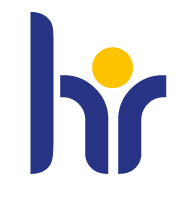Email:This email address is being protected from spambots. You need JavaScript enabled to view it.; This email address is being protected from spambots. You need JavaScript enabled to view it.
Tel. 00 48 693739640
Life Cycle Assessment, Systems Analysis, Multi-criteria Decision Making, Modeling and Optimization (mathematical and metaheuristic), Artificial Neural Networks, Energy Analysis in Agriculture, Agricultural economics.
EDUCATION
2012-2017 Ph.D. at University of Tehran entitled “Life Cycle Assessment of Tomato Paste and Optimization of Tomato Production with Applying Multi-objective Optimization”, Energy & Environment in Agriculture.
2009-2011 M.Sc. at University of Tehran, Agricultural Mechanization.
2005-2009 B.Sc. at University of Tehran, Agricultural Mechanization.
WORK EXPIERIENCE
10/07/2018-15/07/2018 Coordinator of international course entitled “Rice Mechanization Course: Basic and General Concepts”.
15/03/2018-15/07/2018 4 months working at Central and West Asian Rice Center (CWARice) as a researcher.
08/10/2015-01/10/2016 12 months working at Environmental Science Department of Radboud University Nijmegen, Netherlands as a guest researcher.
SCHOLARSHIPS - AWARDS
2016 9 months full scholarship grant for research work from Elite Foundation of Iran.
2016 9 months full scholarship grant for research work from Science Ministry of Iran.
2012 The first rank in PhD entrance exam.
PUBLICATIONS:
Seyyed Hassan Pishgar-Komleh, Tomasz Zylowski, Stelios Rozakis, Jerzy Kozyra, Efficiency under different methods for incorporating undesirable outputs in an LCA+DEA framework: A case study of winter wheat production in Poland. Journal of Environmental Management 260 (2020) 11013
M. Moradi, M.A. Nematollahi, A.M. Khaneghah, S.H. Pishgar-Komleh, M.R. Rajabi. 2018. Comparison of energy consumption of wheat production in conservation and conventional agriculture using DEA. Environmental Science and Pollution Research, 25(35):35200–35209. DOI: 10.1007/s11356-018-3424-x
S.H. Pishgar-Komleh, A. Akram, A. Keyhani, P.M.F Elshout, M.A.J. Huijbregts, R. van Zelm (2017) Variability in the Carbon Footprint of Open-Field Tomato Production in Iran (A Case Study in Alborz and East-Azerbaijan Provinces). Journal of Cleaner Production 142:1510-1517.
S.H. Pishgar-Komleh, A. Akram, A. Keyhani, R. vanZelm (2017) Life cycle energy use, costs, and greenhouse gas emission of broiler farms in different production systems in Iran— a case study of Alborz province. Environmental Science and Pollution Research, 24(19):16041-16049.
S.H. Pishgar-Komleh, A. Akram (2017) Evaluation of wind energy potential for different turbine models based on the wind speed data of Zabol region, Iran. Sustainable Energy Technologies and Assessments, 22:34-40.
P. Sefeedpari, S. Rafiee, A. Akram, K. Chau, S.H. Pishgar-Komleh (2016) Prophesying egg production based on energy consumption using multi-layered adaptive neural fuzzy inference system approach. Computers and Electronics in Agriculture 131:10-19.
P. Sefeedpari, S. Rafiee, A. Akram, K Chau, S H Pishgar Komleh (2015) Modeling energy use in dairy cattle farms by applying multi-layered adaptive neuro-fuzzy inference system (MLANFIS). International Journal of Dairy Science 10:173-185.
S.H. Pishgar-Komleh, A. Akram, P. Sefeedpari (2015) Wind speed and power density analysis based on Weibull and Rayleigh distributions (a case study: Firouzkooh county of Iran). Renewable and Sustainable Energy Reviews. 42:313-322.
P. Sefeedpari, S. Rafiee, A. Akram, S.H. Pishgar-Komleh (2014) Modeling output energy based on fossil fuels and electricity energy consumption on dairy farms of Iran: Application of adaptive neural-fuzzy inference system technique. Computers and Electronics in Agriculture 109:80-85.
S.H. Pishgar Komleh, M. Omid, M.D. Heidari (2013) On the study of energy use and GHG (greenhouse gas) emissions in greenhouse cucumber production in Yazd province. Energy 59:63-71.
P. Sefeedpari, M. Ghahderijani, S.H. Pishgar-Komleh (2013)Assessment the effect of wheat farm sizes on energy consumption and CO2 emission. J. Renewable Sustainable Energy 5, 023131
S.H. Pishgar-Komleh,A. Keyhani,M.R. Mostofi-Sarkari,A. Jafari (2012) Energy and economic analysis of different seed corn harvesting systems in Iran. Energy 43:469-476.
S.H. Pishgar-Komleh, M. Ghahderijani, P. Sefeedpari (2012) Energy consumption and CO2 emissions analysis of potato production based on different farm size levels in Iran. Journal of Cleaner Production 33:183-191.
S.H. Pishgar-Komleh, P. Sefeedpari, M. Ghahderijani (2012) Exploring energy consumption and CO2 emission of cotton production in Iran. J. Renewable Sustainable Energy 4, 033115.
P. Sefeedpari, S. Rafiee, S.H. Pishgar-Komleh, M. Ghahderijani (2012) A source-wise and operation-wise energy use analysis for corn silage production, a case study of Tehran province, Iran. International Journal of Sustainable Built Environment 1:158-166.
S.H. Pishgar-Komleh, P. Sefeedpari, S. Rafiee (2011) Energy use and economic analysis of rice production under different farm levels in Guilan province of Iran. Energy 36:5824-5831.
S.H. Pishgar Komleh, A. Keyhani, Sh. Rafiee, P. Sefeedpary (2011) Energy use and economic analysis of corn silage production under three cultivated area levels in Tehran province of Iran. Energy 36:3335-3341.







